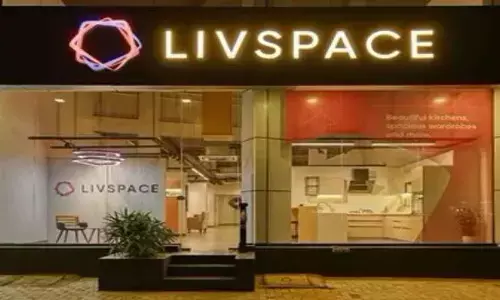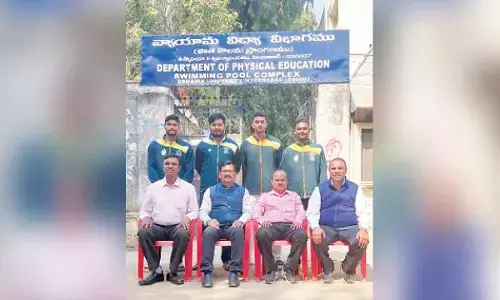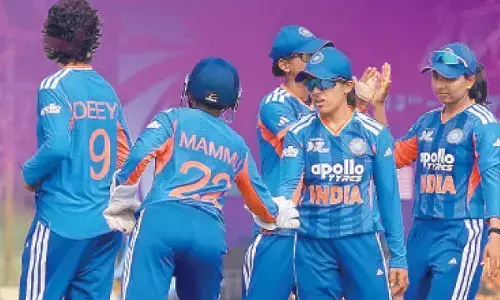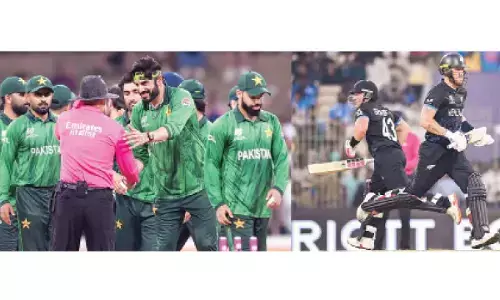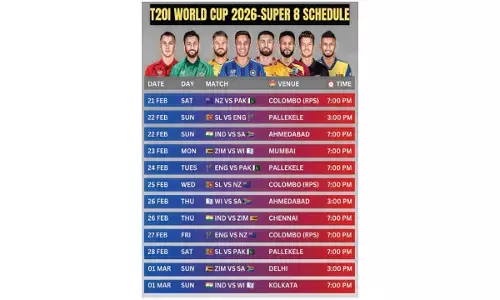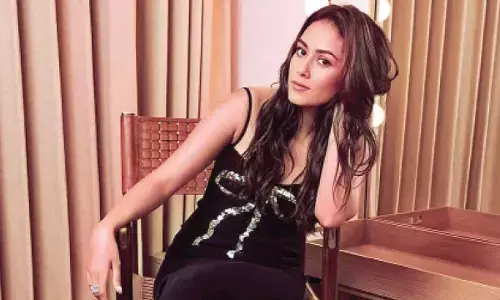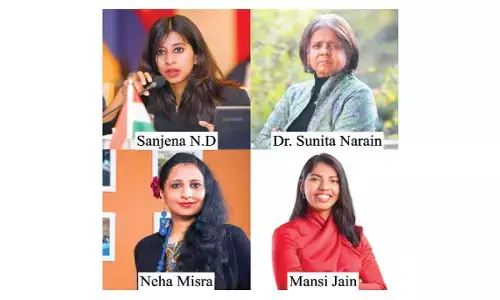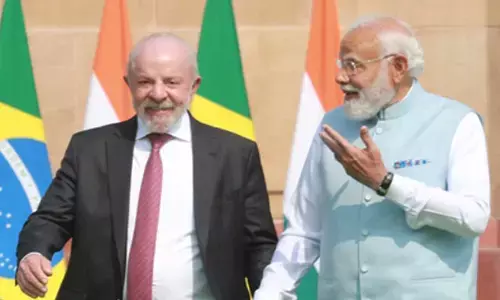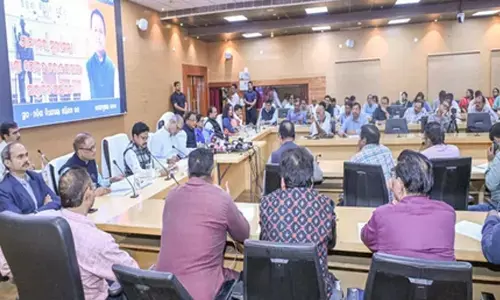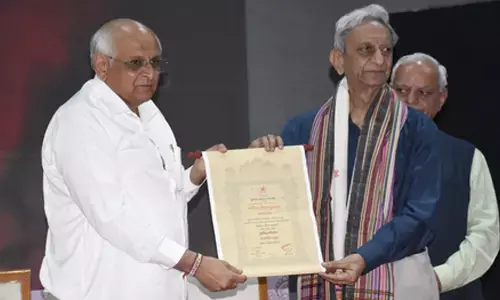Her arts and writings speak
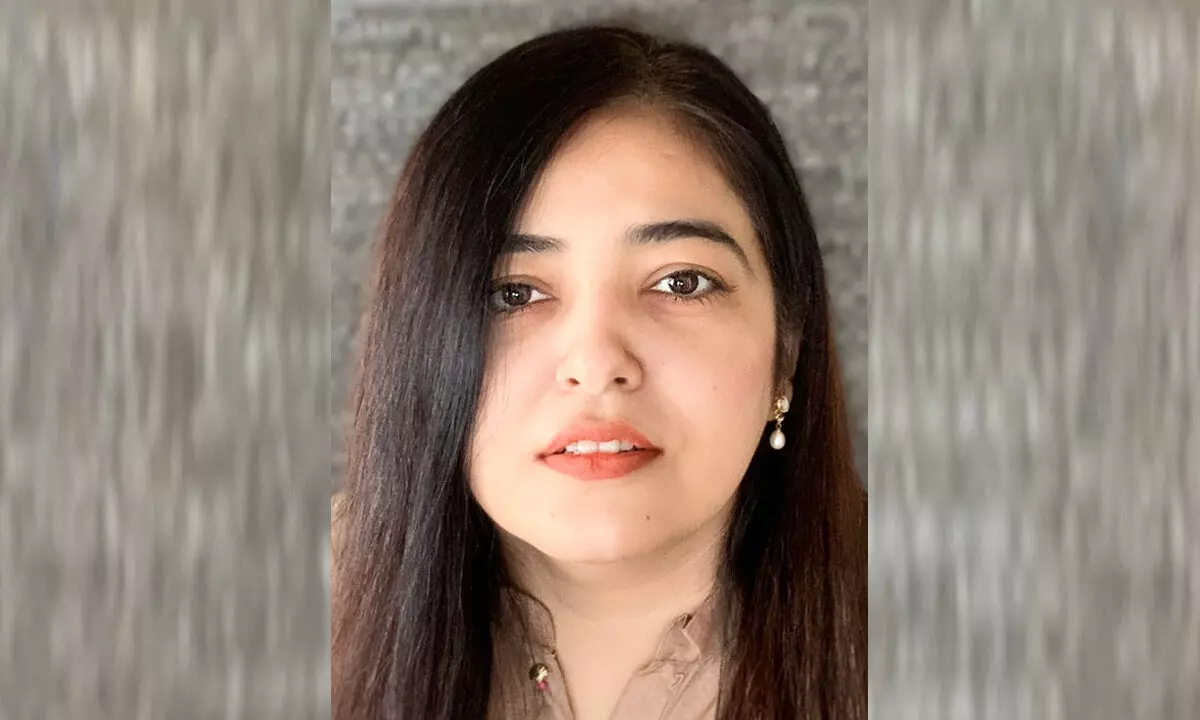
Her arts and writings speak
Tarab Khan, an acclaimed Indian artist and also a published author who had many successful Art shows with leading Art galleries in India shared many insights and experiences of the world of art and books
Tarab Khan, an acclaimed Indian artist, is also a published author with Bloomsbury and her two new books are in the making. She has been invited as a speaker, collaborator and as a panelist to many forums, art and literary events. She had many successful Art shows with leading Art galleries in India. Her latest Art show "At The Gates Of Talbosh" is happening at Gurugram. In an engaging interview with the Hans India, she shared many insights and experiences of the world of art and books. Let's have a look into it.
Your recent solo art show is titled 'At the Gates of Talbosh', Tell us more about it.
'At the gates of Talbosh' invites the viewers to a game of playful discoveries. I have depicted a whirling fabled world where life happens differently. Talbosh is an imaginary place, where the reality has been twisted and pulled, distorted and turned upside down. Without a known originator, the stories seem to have seeded themselves and each story effortlessly segues into another with a promise of a slow escape.
Recently you have completed a decade in your career. How would you describe your journey?
Anybody who has ever written a book or has pursued the artistic route can tell you that it is often a solitary journey, filled with passion and obsessions. In a strange way it is like revelling in a world of duality. On one side it is emotionally gratifying, but on the other hand, it is mentally exhausting. I had my fair shares of highs and lows. Of course, if I ever get a chance to hop into a time machine and travel back, I would have certainly made some amends.
Would you like to elaborate? What could have been done any differently?
Choosing an artistic career is like taking a plunge into a boundary less world of infinities and self-discovery. But it is equally not easy to resist the tugs of conformity. Right from battling the noises of doubts, to finding your space in a world where there are no definitive outcomes that is measurable, the journey of Art is not without traps and pitfalls. There were times when I have been harsh on myself. Truth be told, it took me a while to hold my grounds and find my rhythm. But then I believe we learn better if we make mistakes.
Your profile mentions that you have done masters in economics, but what inspired you to take up art & writing as your career choice?
Economics helps to think strategically and makes me understand the world around me and whereas art and writing scuttles me to a demystifying land where I play, decode or recreate the world as I wish. These opposite worlds have their own charm and I like to dwell between these two extremes.
Tell us about your upcoming projects.
Right now I am working on the final draft of my two upcoming books, 'The Creative Spindle' which is a book about adopting a holistic approach for developing creative intelligence with 5 easy steps. And my second project is a work of fiction written for children, 'Tiny Tom: A little wonder'. It is a heart-warming story for kids. I am also co-authoring a book on The Art of Storytelling with Dr. Rajeev Roy (Dean / XLRI – Delhi). By end of this year, I have plans for solo nternational art shows.
The name, "The Creative spindle" sounds interesting. How did you come up with the idea of this book?
I conduct workshop and sessions for Corporates, B-schools and also for children. While interacting with such a diverse audience, I often get intrigued with questions such as, is art and thinking synonymous? Is art equals to creativity? What is creativity and can it be learnt? So many of us confuse creativity with artistic talent. We must understand that art is just one medium of creative expression, whereas, creativity is a whole spectrum.
We live in a hyper connected digital dominant world where new frameworks, new methods of doing business and disruptive business ideas are shaping the manner in which we engage, interact and create value. And to ride this new era of information paradox and knowledge economy, we need to holistically develop new skills and hone our creative intelligence to maximise greater outcomes.
How has your style changed over time?
I think the changes occur with new knowledge and conceptual blending, as we move forward in the journey. There are different sets of learning that discretely emerges as we navigate in the field of art. This new knowledge empathetically transcends us to a different zone that brings a shift in our style and representation of your thinking. And that vividly reflects in my new creations.


